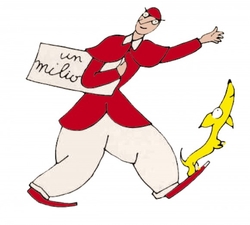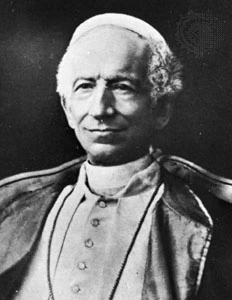Blog Archives
The Monsignor, Italy, And The Untapped Reservoir.
Another beautiful blog post of Mgr Charles Pope (this is the Monsignor with no uncertain trumpet, or talking about locks and keys: when are they going to make him a bishop?), reminiscing of a country in which Christianity was not the enemy, but a deeply felt part of the everyday – and national – consciousness.
I could very well relate to his situation because, on a slightly different plane, I had analogous experiences and I saw the Italian society change in the meantime, though not in such a dramatic way. We had the “Hail Mary” and “Our Father” every morning at school before beginning lessons; religion (that is: Catholicism) was part of the curriculum from kindergarten on, and at school we had religion one hour a week. The country lived at the rhythm of the Christian clock; Christmas was very keenly felt, and the music above one of the most popular Christmas jingles, back in every home year after year. Sunday was the day of rest, Mass and football; the Crucifix was in every classroom, the Pope unceasingly on TV, the mass televised in its entirety at twelve every Sunday. There was a very fortunate radio program every evening and replied every morning: “ascolta, si fa sera”. Millions of children have listened to it whilst having breakfast, for sure, with Handel’s music the same year after year.
Many things have changed now. Sunday is not such a Christian day as it used to be, as the necessity to stress oneself seems to have extended to the seventh day; come to that, Sunday football has also been massacred on the altar of television, and a generation of Italians has grown up without knowing the incredible emotion of “tutto il calcio minuto per minuto”, the most beloved (from men) and most hated (from women) radio program of all times, with a soundtrack and emotions every Italian knew. No TV could ever equal it, I never felt the same emotion again.
Technology has made us stupid, the relentless quest for televised excitement has taken the best emotions away from us. We just pay much more for them; but I digress…
Crucifixes are still in every classroom, and in a healthy reaction to the attack of mad atheists and subversive Muslims the country has successfully fought to keep them where they are supposed to be. But you see that the country has changed; if not dramatically so, certainly worryingly so. “Ascolta, si fa sera” and “tutto il calcio minuto per minuto” are both still there, but the first now hosts Evangelicals and Jews, the second is mutilated by the TV-dictated match schedule.
In all this, the country is being rather admirable at keeping its Catholic roots. Not because of the generally disgraceful clergy (this is the country where some member of the clergy has the nerve of supporting the building of mosques, and others lend churches to Muslims; I hope they repent before they kick the bucket), but because Catholicism is surprisingly resilient, is in the very bone marrow of the country. In Italy, what Catholicism you still have you owe it to the wisdom and resilience of the people, not to the courage of the priests.
Like Monsignor Pope (I always smile at the name…), I see changes around me, and a society certainly less Christian. But I also see a huge untapped reservoir of Christian resources all over the West. It seems to me that Christianity is not dying at all, rather a bit of a sleeping giant; that when the Christian leaders (and most importantly, the Catholic ones) wake up and start to blow the battle horn, the soldiers will not be slow in rallying. In Italy, euthanasia and crucifixes have been clear Christian victories, and after four decades of clerical silence (meaning with this: clerical silence) opposition to abortion is probably not far from 40%. In England, a Pope whose attempted arrest had been feared has drawn crowds unthinkable just the week before; always in England, the virulent anti-Catholic media attack of Easter 2010 has caused a spectacular run of faithful to the churches in the Holy Week in what was clearly a massive popular reaction to the media attacks.
The troops are there. Even in England! Yes, they must be mobilised and trained. But the real problem is not the absence of troops. It’s the lack of willing generals.
Mundabor



















